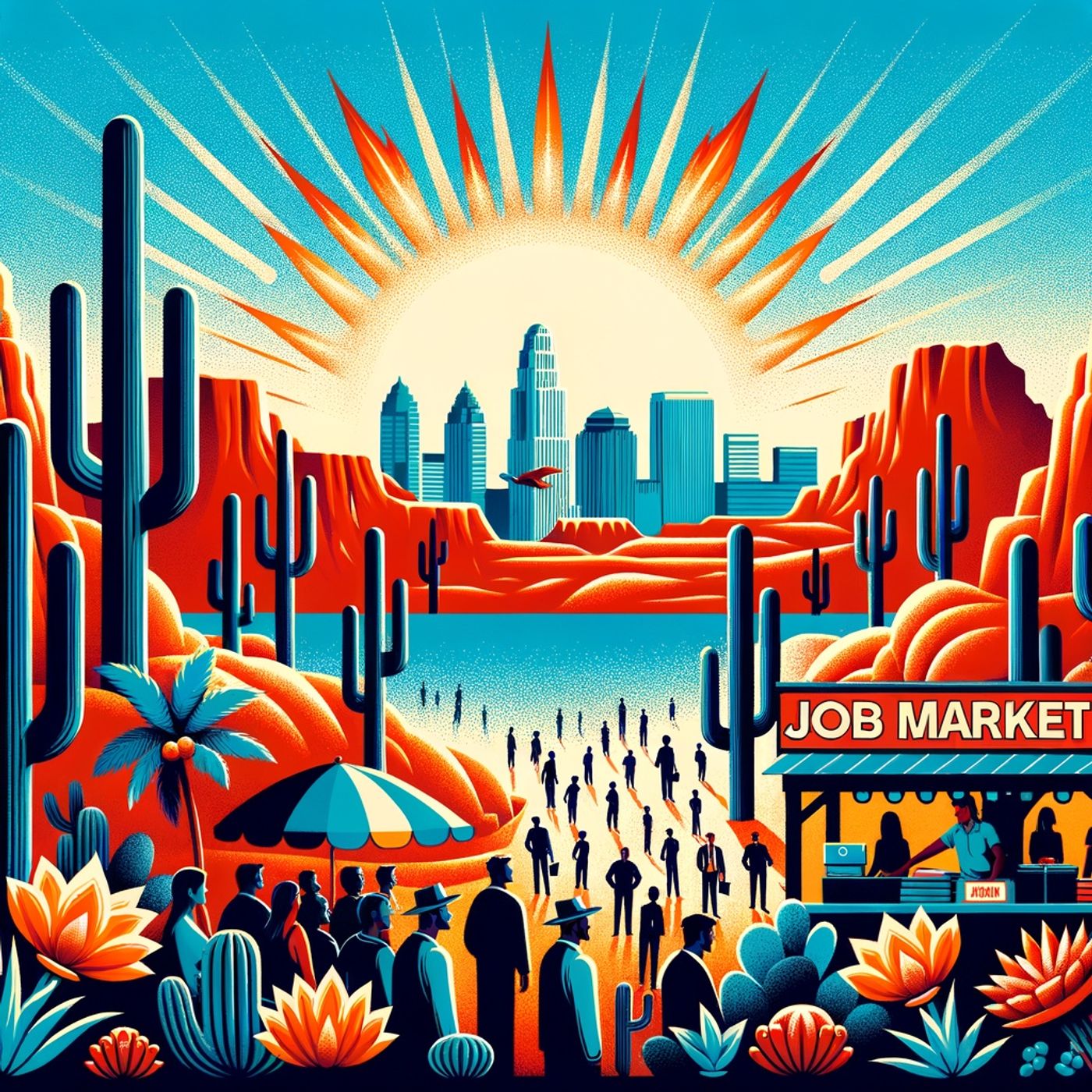Podcast Episode Details
Back to Podcast Episodes
Robust Growth in Phoenix Fueled by Diverse Industries, Tech Hubs, and Evolving Workforce Trends
The Phoenix job market continues to show robust growth in 2025, supported by steady in-migration, diverse industries, and a dynamic economic landscape. Phoenix's employment rate rose by 1 percent this year, contributing to its ranking as one of the top growth cities in the nation, with the median income now reaching $50,209 according to Phoenix Metro Cities Dominate US Economic Growth Rankings. Key sectors driving employment include health care, social assistance, education, retail trade, hospitality, professional services, technology, transportation, logistics, and manufacturing, as discussed by sources like EZ Home Search and Phoenix Metro economic reports. Industrial activity remains especially strong, with Phoenix now ranked among the top ten markets nationwide for industrial leases, while several Phoenix suburbs, such as Maricopa, Buckeye, San Tan Valley, and Goodyear, are recognized for both rapid growth and housing affordability by AZ Big Media. Manufacturing and tech are growing sectors; for example, Applied Materials is expanding its advanced manufacturing facility in Chandler to serve the semiconductor ecosystem, further solidifying the region's importance as a high-tech manufacturing hub based on Your Valley News.
The unemployment rate in Phoenix hovers around the national average, although exact numbers for summer 2025 are not universally reported due to frequent market updates and local disparities. However, job creation remains positive as ongoing population growth fuels demand across housing, health care, distribution, and infrastructure development. The job market is also heavily shaped by automation and AI, with approximately 40,000 customer-service jobs identified as highly exposed to automation risks, disproportionately impacting Latino workers according to Nucamp’s 2025 report. However, sources like the PwC 2025 Jobs Barometer suggest workers who reskill into AI-related positions can expect wage premiums and better job security, emphasizing the city’s focus on tech upskilling and targeted workforce policies.
Major employers in Greater Phoenix include Banner Health, Wells Fargo, Honeywell, Intel, American Express, the Mayo Clinic, and Arizona State University, with many firms expanding facilities or shifting toward hybrid work models. Commuting trends continue to evolve, shaped by increasing hybrid/remote work options and better transit investments. The city government and local development authorities are investing in semiconductor workforce training, business attraction, and expanded infrastructure, aiming to strengthen supply chains and support advanced manufacturing—initiatives underscored by recent commitments from high-profile investors and public-private partnerships.
Seasonal hiring patterns persist in hospitality, retail, and warehousing, with spikes before holidays and during the bustling winter visitor season. The office real estate market has stabilized, with Phoenix recording its first year-over-year increase in average sale price per square foot in more than three years, according to AZ Big Media, signaling new employer confidence in long-term growth.
Despite optimism, challenges do remain, including a need for more inclusive workforce development and strategizing for those most at risk of job displacement due to automation. The labor market remains fluid as employers focus on efficiency and targeted hiring, with many companies maintaining workforce levels as a hedge against inflation and tariff volatility, as reported by Wipfli’s manufacturing benchmarks.
Current job openings in Phoenix include a business analyst position at Banner Health, a semiconductor process technician at Applied Materials in Chandler, and an education program specialist with the City of Phoenix. Thank you for tuning in and don’t forget to subscribe. This has been a Quiet Please production, for more check out quietplease dot ai.
For more
Published on 4 months, 1 week ago